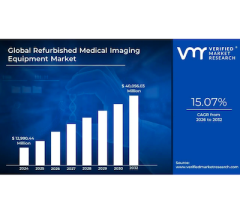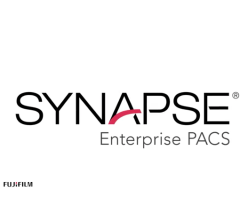
May 19 2022 — Recent disruptions in a pharmaceutical supply chain have impacted the global availability of GE Healthcare Omnipaque iohexol iodinated contrast media (ICM) for radiologic examinations. A new Special Report published in the journal Radiology provides consensus recommendations for dealing with the shortage of ICM in the near term and discusses long-term issues and potential solutions to supply chain problems.
“We are facing issues similar to those we faced in the early days of the COVID-19 pandemic, caused by a limited supply of an important pharmaceutical, critical to our ability to care for our patients,” said Thomas M. Grist, M.D., chair of the Department of Radiology at the University of Wisconsin School of Medicine and Public Health in Madison and lead author of the Radiology Special Report. “One important difference, however, is that our hospitals and health systems are more adept at establishing incident command centers to implement rapid responses to the challenges we face and communicating those changes to our patients and referring physicians.”
Iohexol is a common agent used in a multitude of CT and X-ray exams. The iohexol shortage has created a national challenge to radiology’s collective ability to provide health care to patients needing these exams and will have short- and potentially long-term impact on quality medical care.
Although four companies supply ICM to the U.S., other manufacturers are unable to rapidly scale up ICM production to meet the demand created by the reduction in iohexol.
The shortage traces its origins to the recent COVID-19-related shutdown of a manufacturing facility in Shanghai, China. In an April 19 letter to consumers, GE Healthcare announced it would be limiting orders of iohexol. The facility has since reopened with production output currently at 50% and expected to increase. GE Healthcare has also expanded production capacity at its manufacturing site in Cork, Ireland.
“It is too easy for us to take for granted the readily available supply of something that is so important to our patients and our radiologic practices until it’s gone,” Dr. Grist said. “We need to commit to changing the supply chain so that a single event in a faraway country does not put us in this predicament again. We owe it to our patients who trust us with their lives and well-being every day of the year.”
The shortage has already had an effect on patient care. Across the U.S., hospitals dependent on iohexol are postponing treatment-monitoring imaging for cancer patients, as they attempt to preserve the contrast material for the most urgent cases.
The Special Report offers strategies for mitigating the impact of the shortage. Short-term strategies include establishing an incident command center to direct and monitor ICM usage, delaying elective contrast-enhanced CT exams, converting exams to non-contrast when possible, reducing contrast dose, and substituting other types of exams, such as MRI, ultrasound or non-contrast PET-CT.
Strategies for the coming months include contrast repackaging, multi-use, and multi-access tactics, negotiation with payers on billing and reimbursement, and consistent communication with ordering providers to ensure compliance.
Long-term strategies include advocating for legislation to facilitate contrast manufacturing plants in the U.S., improving institutional inventory of contrast supplies, and supporting the vendors to expand manufacturing.
“RSNA and its journals are committed to providing critical guidance to help our members navigate challenging times,” said RSNA President, Bruce G. Haffty, M.D. “This Radiology Special Report provides helpful strategies for managing the iodinated contrast shortage and offers practical recommendations for mitigating the impact of future shortages of this type on the radiology community and our patients.”
The authors hope that the radiology and hospital communities will take this lesson as a wake-up call to adapt the radiology supply chain to prevent similar emergencies in the future.
“We need to endeavor to ensure that companies with significant market share have diverse production locations and capacity,” Dr. Grist said. “We should also look at the ancillary components for ICM administration and make certain we have adequate supplies in stock. Any and all supplies we use may be the next subject of shortages over the next few months or years.”
For more information: www.rsna.org
Related Content of MRI Gadolinium Concerns
AJR Publishes Best Practices for Iodinated Contrast Media Shortage
Voluntary Dismissal of Chuck Norris Gadolinium Case Involving Bracco
VIDEO: How Serious is MRI Gadolinium Retention in the Brain and Body? An interview with Max Wintermark, M.D.
VIDEO “Big Concerns Remain for MRI Gadolinium Contrast Safety at RSNA 2017,” An interview with Emanuel Kanal, M.D.
Radiology Has Failed to Properly Assess or Track MRI Gadolinium Contrast Safety
Recent Developments in Contrast Media
FDA Committee Votes to Expand Warning Labels on Gadolinium-Based Contrast Agents
European Medicines Agency Issues Update on Gadolinium Contrast Agents


 February 04, 2026
February 04, 2026 









